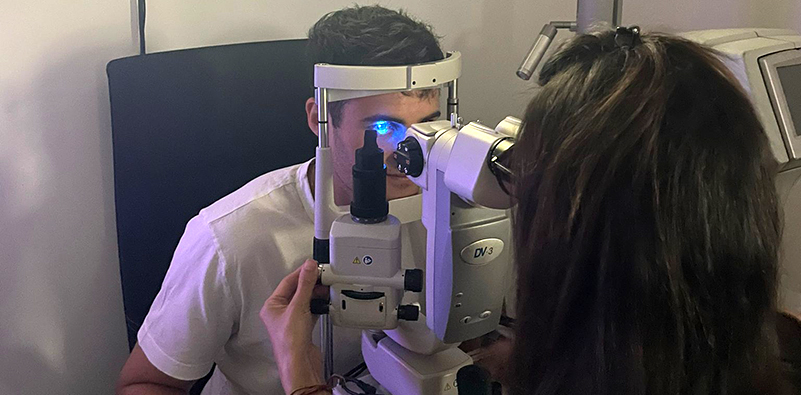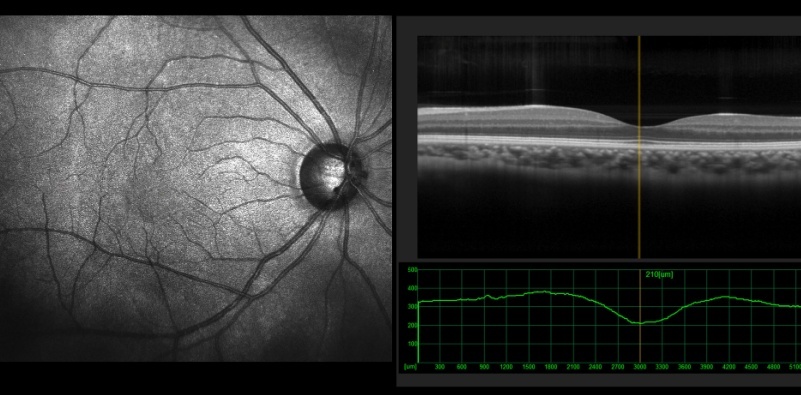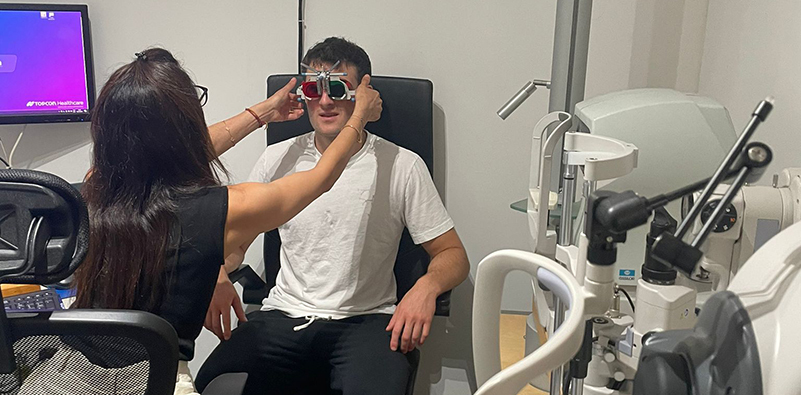How often should I have an eye exam?
Are you one of the many adults who have never had an eye examination? Surprisingly, 1 in 10 haven’t had an eye health check. Unfortunately, this oversight could mean issues with your vision or eye health may remain undetected, impacting your quality of life or, in severe cases, potentially leading to unexpected blindness.
In this comprehensive guide, we’ll delve into why regular eye exams are crucial for your overall health and well-being. Read on to learn more about the importance of regular eye exams, how often you should have them, and general tips to maintain optimal eye health.
Why is it important to attend an eye test?
Many people overlook the importance of regular eye exams because they assume their vision is fine. However, an eye examination is not just about checking your vision to see if you need glasses or contact lenses; it’s also a vital health check for your eyes.
Additionally, vision changes can occur gradually, and you may not notice them until they become significant. By undergoing regular eye exams, any changes in your vision can be detected early, allowing for timely intervention and treatment.
Moreover, an eye exam can detect underlying health conditions that may not present symptoms in their early stages. Conditions such as diabetes, hypertension, and even certain types of cancer can manifest symptoms in the eyes. Early detection through an eye exam can lead to prompt medical attention and better management of these conditions.
Ultimately, having the best vision and eye health can significantly enhance your quality of life. Not only can it prevent injury, but it also allows you to feel at ease knowing your eyes are in good condition and well cared for.
What diseases can be detected in an eye exam?
During an eye exam, our optometrists utilise specialist equipment such as optical coherence tomography (OCT) scans to examine both the internal and external structures of your eyes. An OCT eye exam enables us to detect even the smallest abnormalities and diagnose conditions such as glaucoma, macular degeneration and diabetic retinopathy before symptoms can start to show.
Glaucoma, for example, is often referred to as the ‘silent thief of sight’ because it typically progresses slowly and without symptoms until significant vision loss occurs. However, through regular eye exams, early signs of glaucoma can be detected, allowing for timely treatment to prevent vision loss.
Similarly, macular degeneration is a leading cause of vision loss in older adults. Our optometrists can detect early signs of macular degeneration by using advanced imaging techniques during an eye exam, enabling timely intervention to slow its progression and preserve vision.
In addition to detecting eye diseases, an eye exam assesses your visual acuity. This includes testing your ability to focus, coordinate your eyes and perceive depth and colours accurately. By identifying vision conditions such as myopia (short-sightedness), hyperopia (long-sightedness) and astigmatism, we can prescribe corrective glasses or contact lenses to improve your vision and enhance your quality of life.
How often should I have an eye exam?
For adults aged 18-69, official guidelines recommend you attend an eye examination every two years unless advised otherwise by our optometrist. Children under 18 and adults aged 70 should have an eye exam annually. However, if you notice any changes in your vision or experience eye discomfort, we strongly advise you get your eyes checked as soon as possible.
Regular eye exams are particularly important for children as their eyes are still developing. Undetected vision problems in childhood can lead to learning difficulties, problems with social interactions, and other developmental issues. By ensuring your child attends regular eye exams, any vision problems can be identified early and corrected to support their learning and development.
Furthermore, adults with certain risk factors may require more frequent eye exams. For example, if you have diabetes, high blood pressure, a family history of glaucoma, or a history of eye injury or surgery, your optometrist may recommend annual eye exams to monitor your eye health more regularly.
Our 4 tips to protect your eye health
1. Protective eyewear: whether playing sports, using power tools, or working with chemicals, wearing protective eyewear can prevent serious eye injuries and maintain good vision. From safety glasses and goggles to face shields; all of these are designed to protect your eyes from impact, debris, and harmful substances.
2. Healthy lifestyle choices: We recommend eating a balanced diet of fruits and vegetables high in vitamins A, C and E and omega-3 fatty acids. These nutrients are essential for maintaining the health of your eyes and reducing the risk of eye diseases such as cataracts and macular degeneration.
Additionally, avoid smoking and limit alcohol consumption, as these habits can increase the risk of eye diseases and vision loss.
3. UV protection: protect your eyes from harmful ultraviolet (UV) radiation by wearing sunglasses whenever you’re outdoors, even on cloudy days. UV exposure can increase the risk of developing eye diseases such as cataracts, macular degeneration, and even certain types of eye cancer.
Look for sunglasses that provide 100% UV protection and choose styles like oversized and wraparound sunglasses that cover your eyes and the delicate skin around them for maximum protection.
4. Reduce digital eye strain: many of us spend hours staring at screens in today’s digital age. This prolonged screen time can lead to symptoms of fatigue, dry eyes, headaches, and discomfort, which are all signs of digital eye strain.
Follow the 20-20-20 rule – every 20 minutes, take a 20-second break and focus on something 20 feet away, which will help relax your eyes and reduce symptoms. Additionally, adjust the brightness and contrast of your screens to reduce glare and eye strain. Lastly, consider using blue light filtering glasses or screen filters to minimise exposure to harmful blue light emitted by digital devices.
Book your next eye exam
Your eyes are precious, and regular eye exams are the key to maintaining their health and ensuring you enjoy clear vision. If you’re overdue for an eye exam or have noticed any changes in your vision, book an appointment at our opticians in Potters Bar, Temple Fortune and Finchley today.




